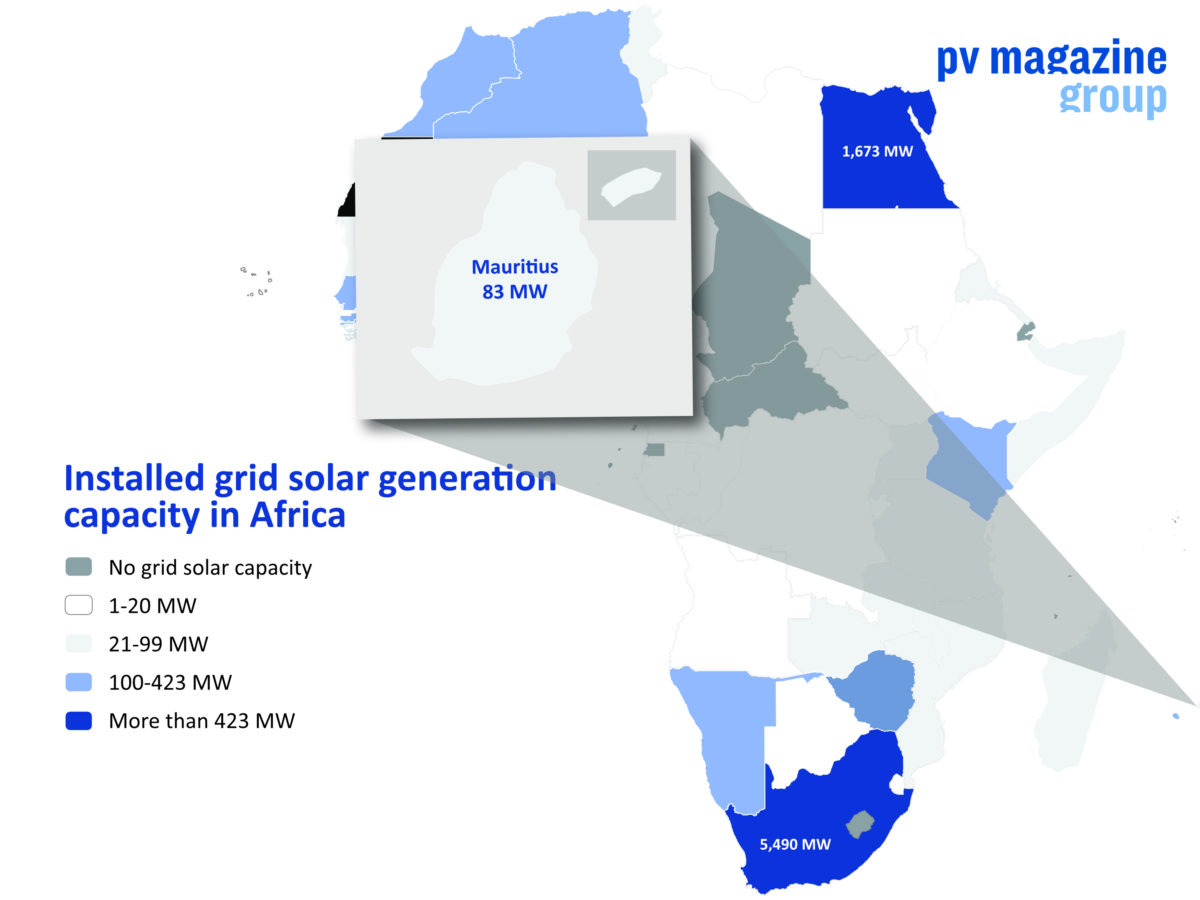Mauritius' state-owned electric utility has opened two schemes to drive the deployment of up to 20 MW of household and commercial PV systems, with half of it linked to the home and business charging of electric vehicles (EVs).
In line with pledges made in the national budget speech in the summer, the Central Electricity Board (CEB) has opened a household solar program which will pay for all the electricity generated by rooftop arrays with a generation capacity of up to 5 kWp; and an EV-linked scheme open to domestic and commercial customers, which has a 10 kWp DC maximum system size.
pv magazine print edition
Pick up the latest edition of pv magazine to read about the many software solutions driving the energy transition. From big data and artificial intelligence taking the hard work out of operations and monitoring, to the move toward international standards and a consensus in ensuring electricity networks are secured against cyber attacks and other digital threats; the bits and bytes of software solutions play a complex and central role in the energy system.
Each program aims to allocate 10 MW of generation capacity, to help the government towards its aims of securing 35% of its electricity from renewables by 2025, and 60% by 2030.
In each case, all of the electricity generated by the solar systems will be bought by the utility for MUR3.73/kWh ($0.083) in this fiscal year, with that tariff to be re-evaluated annually over a 20-year payment period. In cases where grid electricity is already supplied to the consumer at a lower price, the tariff paid will be calculated from the difference between the two figures, weighted according to how much electricity is generated by the solar panels and how much grid power is used by the home or business.
The CEB trails the fact all power or, in the case of EV charging, excess power, will be exported to the grid under the ‘gross metering‘ approach – without any self-consumption – as a positive aspect of the program as it ensures consumers will not have to buy an energy storage system.
Popular content
With the EV-linked program already open, the CEB yesterday opened the application process for its household solar scheme. Non-commercial users of the EV-linked system will be eligible for time-of-use electricity tariffs at some stage, the CEB stated on its website, although the details of the tariffs has yet to be worked out.
The electric company said the purchase of solar arrays could be financed through ‘green' loans offered by local banks thanks to funding from French development agency the AFD (Agence française de développement) or with 2%, concessionary-rate loans offered by the Development Bank of Mauritius up to a value of MUR100,000 ($2,240). With a MUR2,000 ($45) registration fee applying to the two programs, the CEB said “eligible customers” could deduct the full cost of solar systems from their income tax bill under the government's Solar Energy Investment Allowance.
The two solar deployment initiatives follow the introduction of a 60 MW program by the utility in October which was aimed at incentivizing renewable energy projects with generation capacities of up to 15 MW, to be developed by public sector entities.
If fully subscribed, the three programs could drive 80 MW of new solar capacity in a nation which had only 83 MW of grid-connected solar a year ago, according to an International Renewable Energy Agency estimate.
This content is protected by copyright and may not be reused. If you want to cooperate with us and would like to reuse some of our content, please contact: editors@pv-magazine.com.



By submitting this form you agree to pv magazine using your data for the purposes of publishing your comment.
Your personal data will only be disclosed or otherwise transmitted to third parties for the purposes of spam filtering or if this is necessary for technical maintenance of the website. Any other transfer to third parties will not take place unless this is justified on the basis of applicable data protection regulations or if pv magazine is legally obliged to do so.
You may revoke this consent at any time with effect for the future, in which case your personal data will be deleted immediately. Otherwise, your data will be deleted if pv magazine has processed your request or the purpose of data storage is fulfilled.
Further information on data privacy can be found in our Data Protection Policy.